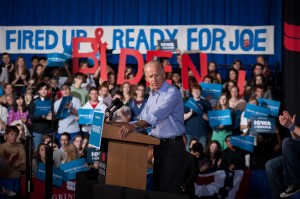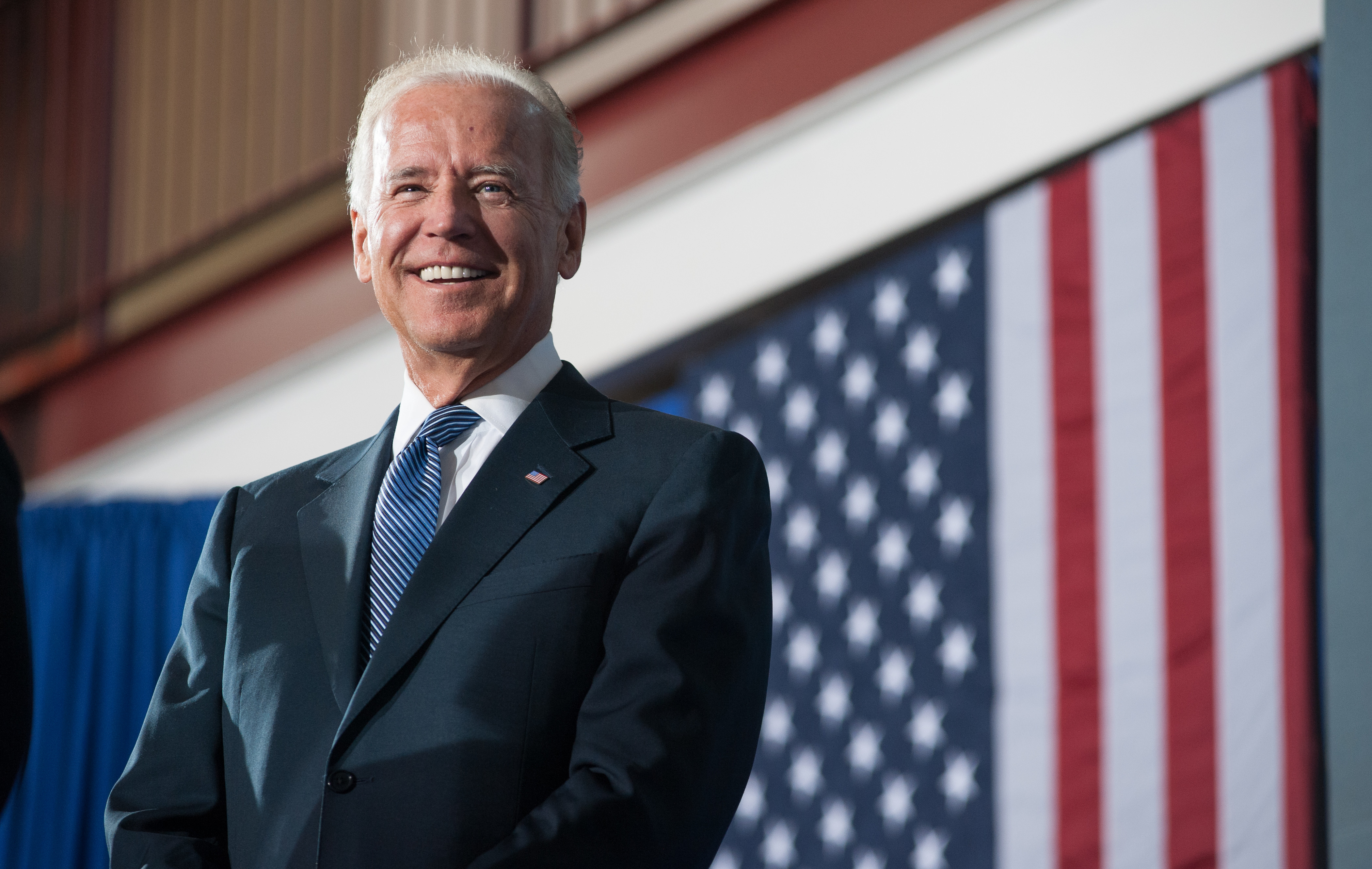When Barbara Walters implied that Joe Biden would not run for president if Hillary Clinton announced her candidacy on a recent episode of The View, the vice president was taken aback. What followed was the most concrete sign thus far that Hillary Clinton might not run unopposed in the Democratic primaries. “Whether Hillary runs or not will not affect my decision,” he said, “I absolutely have not said no. It’s as likely I run as I don’t run.” Biden essentially pitched his would-be campaign, arguing he was “uniquely positioned” to be president and highlighting his comparatively populist strain of politics, which sees a shrinking middle-class and the widening of the income gap as the main challenges facing the country.
For all intents and purposes, Joe Biden is a strong candidate — likable and very experienced in both the legislative and the executive branches, with a proven ability to withstand and maybe even flourish under the scrutiny of a presidential campaign. Biden’s life story is also one that might resonate with voters. The vice president has overcome a lot of adversity, rising from a working-class background to become the sixth youngest Senator in U.S. history. Biden also famously lost his wife and one-year old daughter in a car crash shortly before his inauguration to the Senate. He is also a little outlandish, “the closest thing U.S. politics has to a human highlight reel,” as Washington Post’s Michael Taube has put it. But even that might be endearing in an age of cookie-cutter politicians and prepared statements. If it were not for Hillary Clinton, 2016 would in all likelihood be Biden’s year.

Few people expect an intra-party fight among the Democrats, or even know what such a fight would look like. The Democratic Party has for the most part been a very coherent and unified group during the Obama years. The last two politicians who were pitted against each other in the primaries have become strong allies. As of now there are no discernible Obama, Hilary or Biden camps. A far cry from the internal strife within the Republican Party, Democrats seem to be on the same wavelength on the vast majority of issues, united against a reactionary and uncooperative GOP.
A recent poll asked Democrats whom they would like to see running for nomination in 2016, allowing for more than one choice. Forty-two percent of Democrats stated they would like to see Joe Biden run. The leading Republican in a similar poll is Jeb Bush, with just forty-one percent. One would argue that Biden is not in a bad position if it were not for the fact that an overwhelming eighty-two percent of Democrats answered they would like to see Hillary run. When pitted against each other, Hillary leads Biden by a sixty-one-point margin — the largest ever recorded for a presidential frontrunner.
If Biden does run though, it would be because he believes he has a legitimate chance of winning. As he said on The View, “the only reason to run for President is if truly believe you are in a better position to do what is truly needed in a country.” Within the narrow political spectrum of the Democratic Party, Biden would fall left of Hillary. His somewhat populist strain of politics is appealing to some. His Scranton middle-class roots are well known, epitomized by the fact he took the Amtrak to work during his thirty-six years in the Senate.
A hypothetical Biden campaign would likely attempt to pit Hillary as a centrist, unwilling to tackle the problem of pervasive inequality in the United States, which as the vice president stated on The View, would be his single focus. This might not be such a difficult task, considering Bill Clinton is arguably the man who brought the Democratic Party to the center. A populist message might be attractive to the Democratic base, for which inequality is a central issue. If Biden is able to effectively cast Hillary in this centrist light while highlighting his populism, he might be able to put up a fight.
Biden supporters might also make the argument that Hillary is too much a part of the Washington establishment — part of a Clinton political machine that thrives on too many of the negative aspects of American politics such as big money and political dynasties. Although definitely a part of the Washington establishment, Biden might be able to effectively project himself as a man of the people, separate from the influence peddling permanent political class represented by families like the Clintons and the Bushes.
On the other hand, a Biden candidacy might allow Hillary to distance herself from an increasingly unpopular Obama administration. She could argue that her tenure as secretary of state never implied support for Obama’s domestic policies. Running against Biden would give her a platform from which she could criticize some of the more unpopular elements of the Obama administration, such as healthcare reform and NSA spying. Running specifically against Biden would thus present Hillary with an ideal opportunity to distance herself from Obama.At this point it is difficult to predict how things will play out. A Hillary candidacy is all but officially confirmed. The question is whether her nomination will be a shoe-in, or whether there will be legitimate competition, which at this point can only come in the form of Joe Biden. If the later occurs, it will be interesting to see if Biden can generate national debate over the issue of growing income inequality in America, and where the allegiances of other Democrats, including the President’s, will lie.
